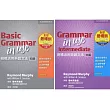From the perspective of philosophical contrastive pragmatics, this study investigates our multiple selves as manifested in how we use language. Based on analyses of original and translation texts of Japanese and English literary works, the Japanese self is proposed as being fundamentally empty and yet richly populated with multiple subjective aspects, characters, and characteristics. Incorporating the concept of emptiness drawn from Japanese philosophical traditions and postmodernism primarily developed in the West, selves evidenced in grammar, style, and variation are investigated applying interpretive resources of linguistic subjectivity, character, and character-speak. Expressive gaps found in source and target texts across two languages lead us toward different ontological views, and guide us to engage in the rethinking of the concept of self.



 天天爆殺
天天爆殺  今日66折
今日66折 




























 博客來
博客來 博客來
博客來 博客來
博客來 博客來
博客來 博客來
博客來